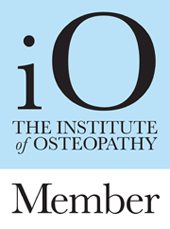Nutrition & arthritis

Did you know?
The term arthritis literally means ‘joint inflammation’ although arthritis actually refers to a group of over 100 rheumatic diseases and conditions most notably causing pain, stiffness and swelling.
These cardinal signs of inflammation may occur in one or more joints in the body, especially in the morning and/or after exercise. Other symptoms may include restricted range of motion and/or bony growths or spurs in affected joints, increasing pain and decreasing mobility.
Arthritis is not a modern ailment and has been with us for many years. However, conventional medicine has still not conclusively proven how it occurs. There are many different types of arthritis and if left undiagnosed, it may cause irreversible damage to the joints. Common areas affected include the body’s moveable and/or synovial joints at the knees, wrists, elbows, fingers, toes, hips and shoulders.
Some forms of arthritis can be reversible with proper lifestyle and dietary changes. These changes not only target inflammation but may also stop degeneration and help to rejuvenate the affected joints.
Diet and arthritis
Eating a healthy balanced diet is important for people with arthritis as it will provide the right balance of nutrients our body needs for day-to-day functions. But the relationship between diet and arthritis is complex and more studies are needed to understand better the role of diet in the treatment of arthritis.
Medications used to treat arthritis may have side effects and may interact with how nutrients are absorbed. In addition, people with arthritis may have restricted food choices due to their condition.
People with arthritis may have extra requirements of certain nutrients.
What nutrients should people with arthritis be concerned about?
Fats
The building blocks of fat are fatty acids that can be saturated, monounsaturated or polyunsaturated. The type of fat you consume can influence levels of inflammation.
Fish oils and omega-3 fatty acid supplements
Omega-3 fatty acids can reduce general inflammation in the body and protect the heart. Evidence suggests that particular omega-3 fatty acids found in oily fish may lessen pain intensity in the joints of people with arthritis.
Plant seed oils
Oils extracted from the seeds of evening primrose, blackcurrant and borage (starflower) contain the omega-6 fatty acid active component. Some evidence advocates the use of plant seed oils in relieving pain and restricted mobility associated with arthritis.
Calcium
People with rheumatoid arthritis (RA) taking steroids on a long-term basis are at risk of developing osteoporosis. 3 servings per day of calcium-rich foods such as semi-skimmed milk, low- fat yogurt and low-fat cheese are recommended.
Iron
People with RA frequently experience tiredness, which can be made worse by anaemia (low iron levels). In addition, people with arthritis that take non-steroidal anti-inflammatory drugs (e.g. ibuprofen) on a long-term basis are at risk of anaemia (loss of blood in the stomach).
Choosing iron-rich foods (e.g. red meat, dark leafy greens, nuts, sunflower seeds, pulses, whole grains) often prevents anaemia. Adding fruit, vegetables or a glass of fruit juice to your meal can facilitate increased iron absorption from plant-based foods.
Vitamin B6
Some studies suggest that people with RA may not get enough vitamin B6 from their diet. Good sources of vitamin B6 include poultry, fish, milk and dairy products, eggs, wholegrain foods, soya beans and peanuts.
The power of the pineapple
Bromelain is an enzyme found in pineapple, which may help to stimulate the production of prostaglandins (groups of lipids made at sites of tissue damage or infection that help to reduce inflammation). Bromelain can also be taken in supplement form.
Please note: if you currently take medication it is important to consult a health professional prior to taking supplements.
Contact Lucy, our nutrition advisor for more information.


